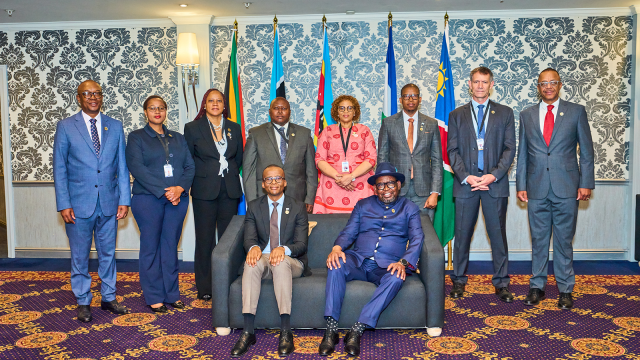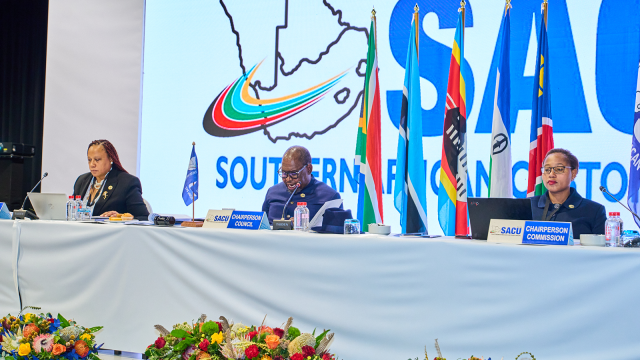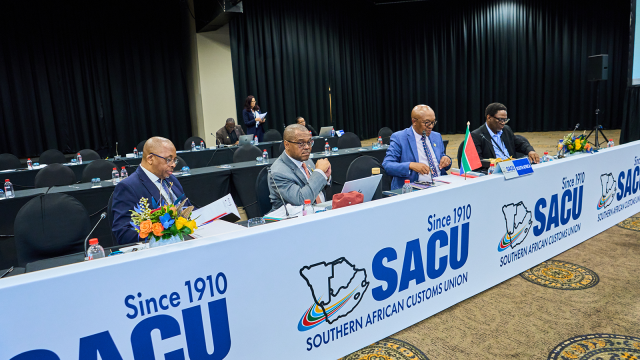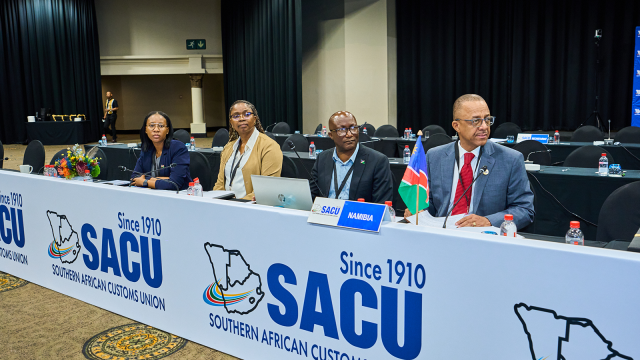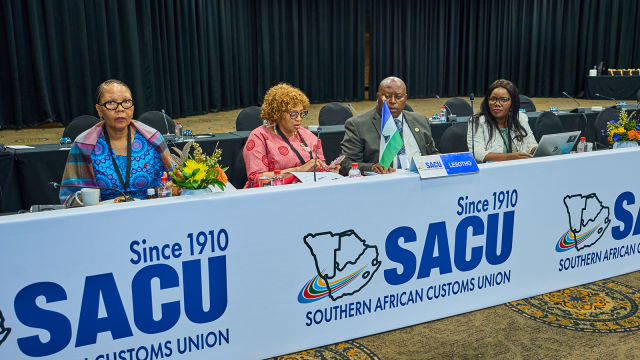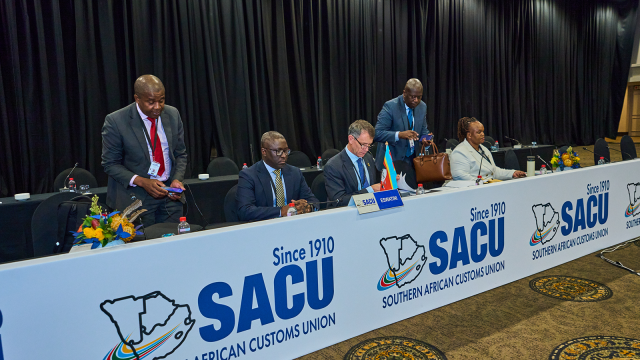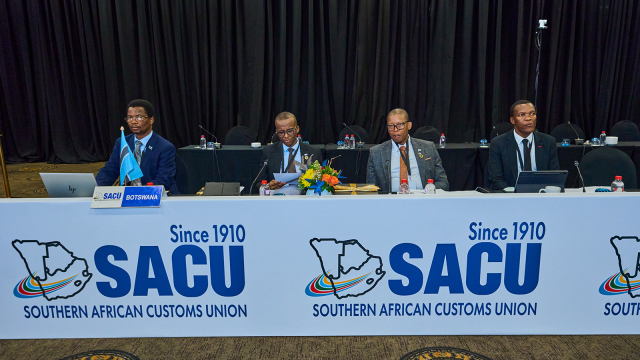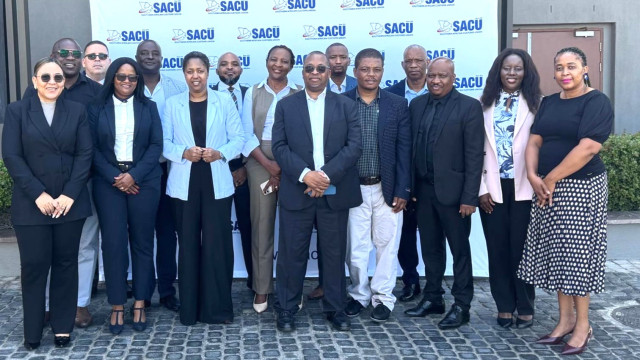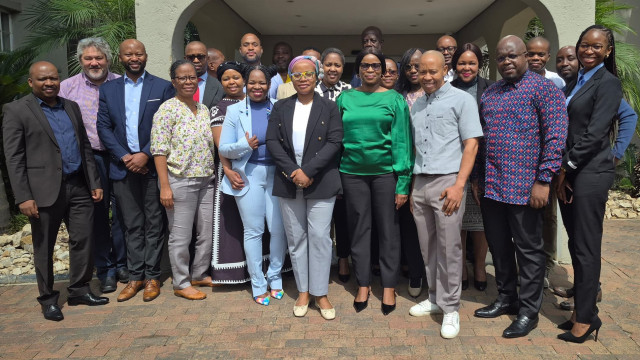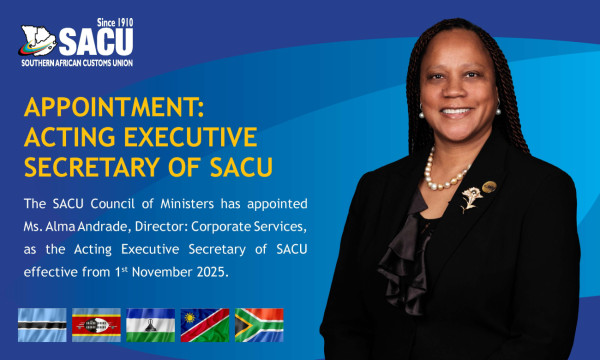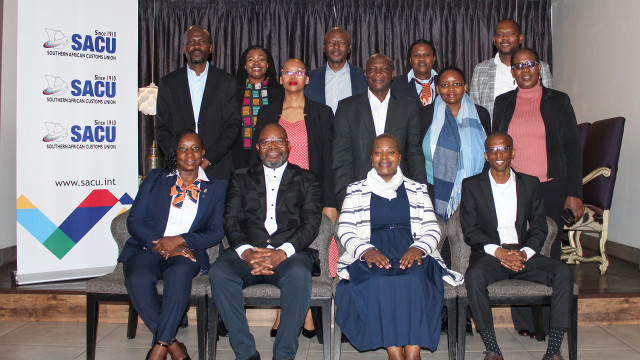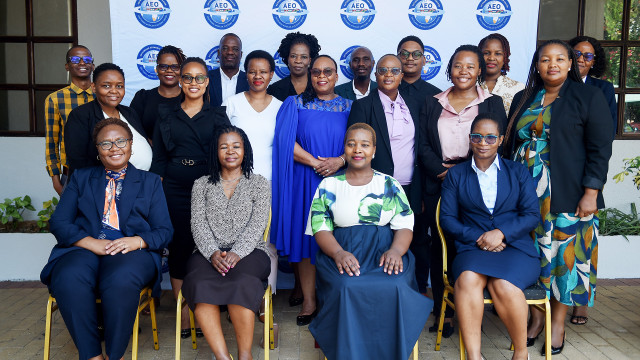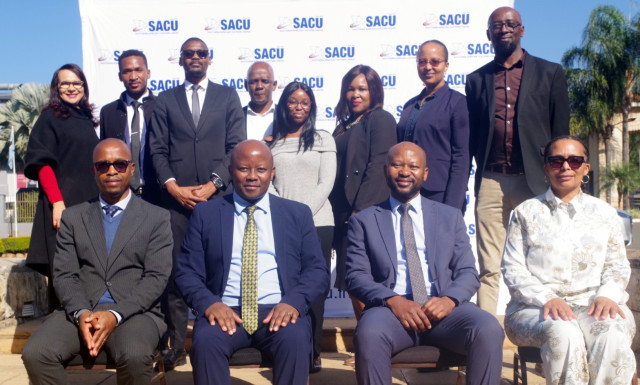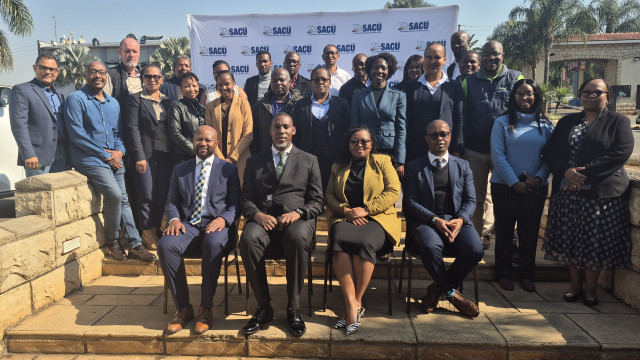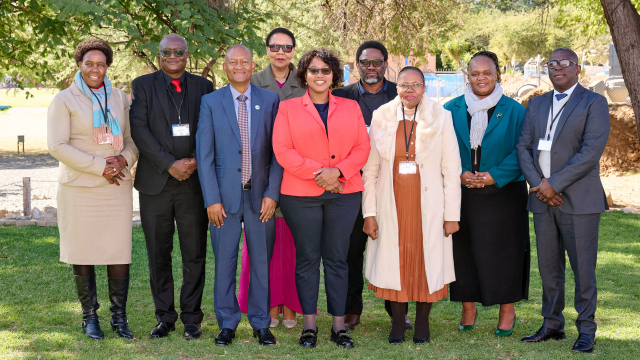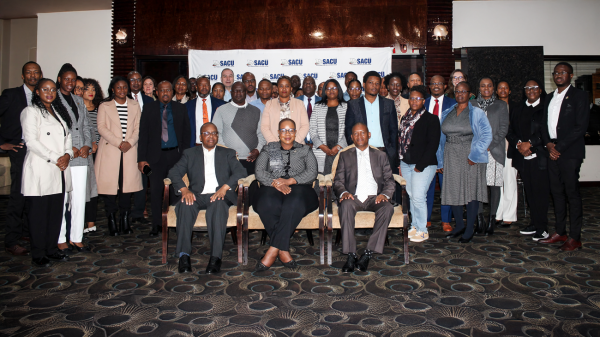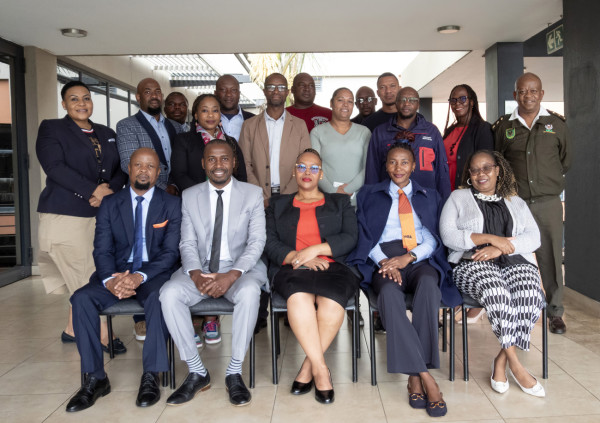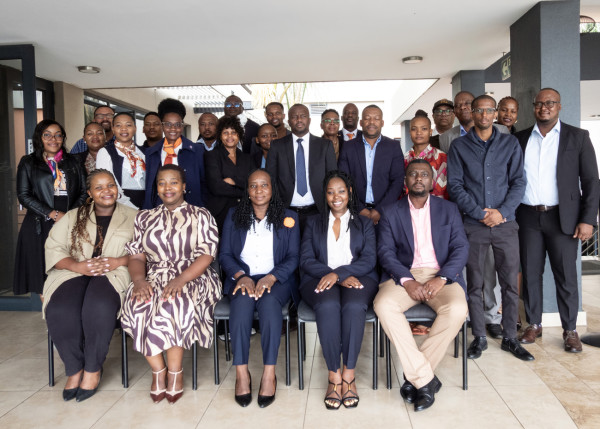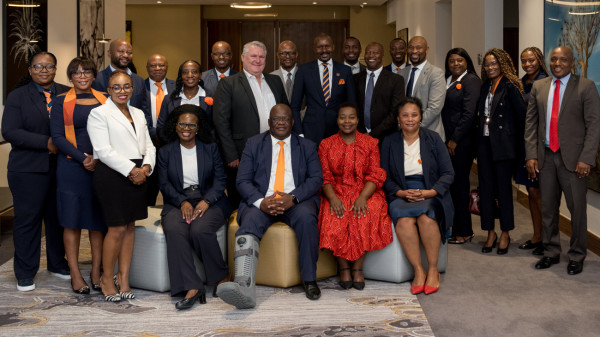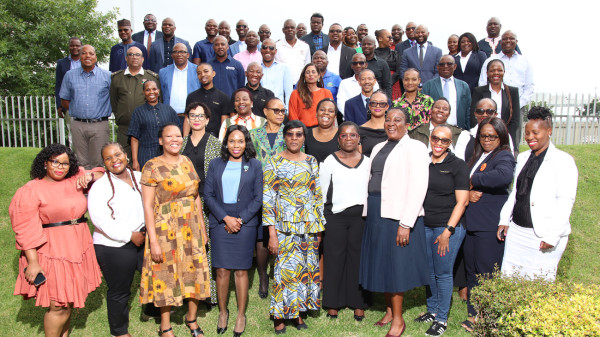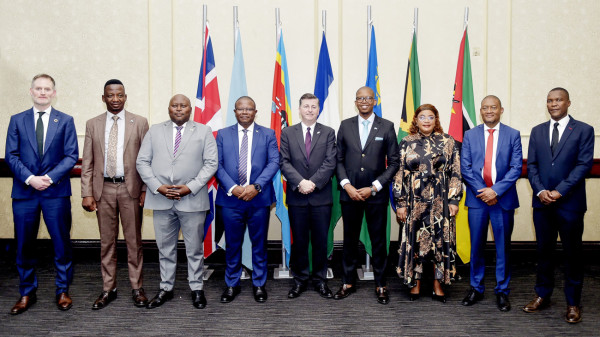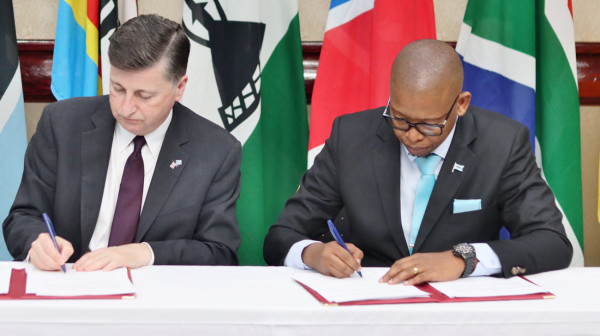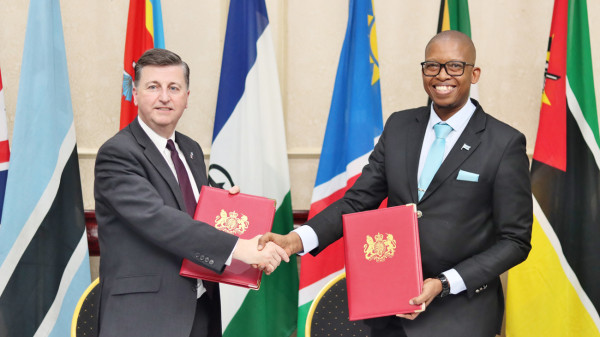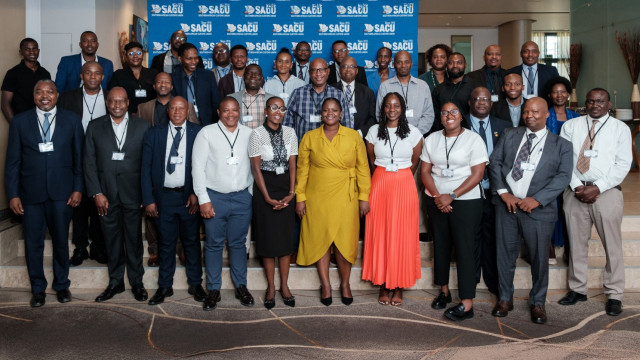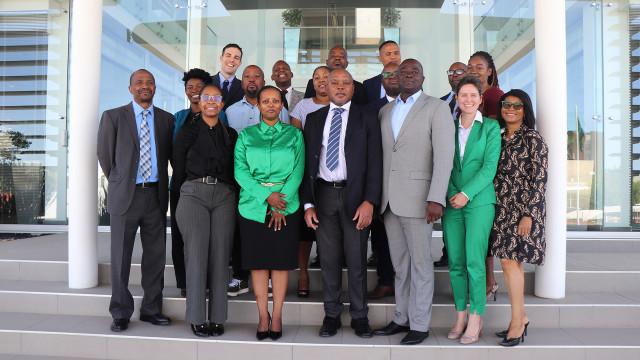Featured
Key Projects See all Projects
Development of Regional Value Chain
As of October 2020, SACU undertook to promote industrial development through the development of regional value chains (RVCs), export promotion, and investment. The main goal being contribution towards an integrated regional market that would enhance Member States’ international competitiveness. The SACU Strategic Plan also seeks to improve the region’s industrial base, promote sectoral complementarities in production, as well as backward and forward linkages that would promote diversification across the region. Furthermore, the SACU region, through this Programme, will pursue a systematic approach and practical steps to deepening industrialisation whilst simultaneously positioning the region to take full advantage of the opportunities presented by the African Continental Free Trade Area (AfCFTA).
In this regard SACU Member States have selected a number of priority sectors that would be targeted for the development of Regional Value Chains (RVC).These are Agro-processing (Leather and Leather products, Fruits and Vegetables, Meat and Meat products), Textiles and Clothing and Cosmetics and Essential Oils. These sectors offer extensive opportunities for the development of RVCs across SACU. To advance this work, a series of Sectoral Roundtables focusing of the priority sectors were held between March and July 2021. The Sectoral Roundtables identified the development and investment potentials in the priority sectors, along with the policy constraints and challenges faced by the industry within the SACU Region.

Implementation of the AfCFTA in SACU
In line with the decision of the 13th Extra Ordinary Session of the African Union (AU) Assembly held on 5th December 2020, trading under the AfCFTA started on the 1st January 2021. SACU regards the AfCFTA as a strategic continental instrument; hence, the implementation and leveraging of the AfCFTA has been prioritised as one of the pillars that underpin the recently approved SACU Strategic Plan for 2022–2027. SACU aims to position itself to take full advantage of the AfCFTA through industrialisation, the development of regional value chains, export promotion and investment attraction and promotion.
All SACU Member States have ratified the Agreement establishing the AfCFTA and the Tariff Offer of 7111 tariff lines, which represents 90 percent of the SACU Tariff Book in line with the Agreed Modalities for Tariff Liberalisation, was submitted to the AfCFTA Secretariat on the 13th February 2023. The implementation of the AfCFTA is one of the priority areas in the Strategic plan of the SACU region and the following are the expected results:
- A SACU-wide AfCFTA implementation strategy developed and implemented;
- Promoting effective utilisation of the AfCFTA by the business community;
- Increased investment, employment opportunities and income; and
- Market and export diversification
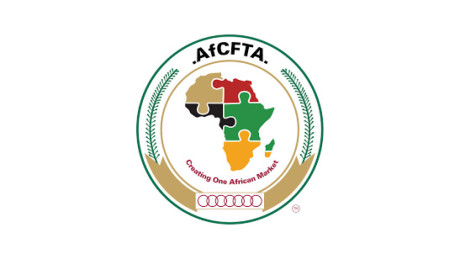
Authorised Economic Operator Progamme
The Authorised Economic Operator (AEO) Programme is as a flagship Customs-Business partnership which presents mutual benefits that enables SACU Customs Authorities to share compliance and security responsibilities with the private sector, while rewarding them with various trade facilitation perks. Such partnership initiatives hold the promise of enabling revenue administrations to achieve greater efficiency, aiming for sustainable and long-term voluntary compliance through incentivisation.
Participants in the AEO Programme are required to uphold stringent internal operational standards and demonstrate a consistent track record of compliance. In return for their adherence to these standards, businesses receive a range of benefits aimed at bolstering their operations. The AEO program aligns with international compliance frameworks, emphasising the importance of enhanced voluntary compliance. This necessitates Customs to place increased trust in traders who actively opt for compliance, thereby fostering a collaborative approach towards ensuring regulatory adherence and facilitating smoother international trade processes.
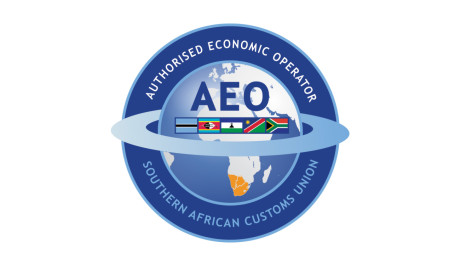
Trade Relations with Third Parties
Part 5 of the SACU Agreement, 2002 (as amended in 2013), provides for Trade Liberalisation. Article 31 on Trade Relations with Third Parties establishes a framework that facilitates the region's integration into the global economy, fostering increased trade and participation in global value chains. SACU Member States have pursued a unified approach to negotiations with third parties. Since 2002, Member States have concluded several trade negotiations as a bloc with some key trading partners. Article 31 of the 2002 SACU Agreement require the SACU Member States to negotiate trade agreements with third parties as a collective. The SACU Secretariat coordinates the SACU negotiating agenda, i.e. negotiations with third parties, and implementation of agreements. Member States conduct the negotiations and implement the agreements. The SACU Secretariat further supports policy development and harmonisation of national policies and strategies of SACU Member States as far as they relate to SACU.
Concluded Agreements with Third Parties:
- FTA - SACU and the European Free Trade Association (EFTA) - Norway, Iceland, Switzerland and Liechtenstein;
- Economic Partnership Agreement - SADC-EPA Group and the European Union - (EU-SADC EPA);
- SACU and MERCOSUR PTA; and
- Economic Partnership - SACU, Mozambique and the UK;
- SACU USA Trade and Development Cooperation Investment
The SACU Member States are also engaged in these ongoing trade negotiations:
- the Common Market for Eastern and Southern Africa (COMESA), East African Community (EAC) and SADC;
- Preferential Trade Agreement between SACU and India; and
- review of the SACU-EFTA FTA.
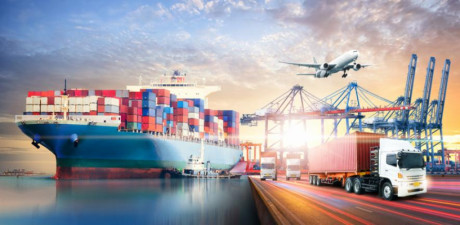
Member States
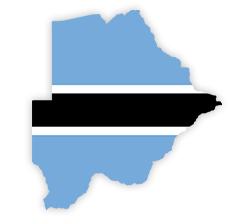
Botswana
Botswana is the world's largest producer of diamonds and the trade has transformed it into a middle-income nation. Botswana is trying to reduce its economic dependence on diamonds, moving to boost local business and employment by encouraging more value to be added to diamonds locally. Botswana protects some of Africa's largest areas of wilderness. It is sparsely populated, because it is dry. The Kalahari Desert, and most areas are too arid to sustain any agriculture other than cattle.
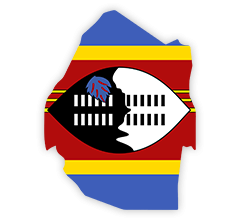
Eswatini
The Kingdom of Eswatini is an independent Monarchy, rich in traditions and heritage, led by King Mswati III, since 1986, as Executive Head of State with parliament and consultation prescribing laws and Customs. Eswatini is a Kingdom in Southern Africa, and covers an area of 17,363 square kilometres. Eswatini is virtually homogenous, most of the population being of the same tribe. Economically, Eswatini trades mainly with South Africa, which receives almost half of Swazi exports and supplies most of its imports.

Lesotho
The Kingdom of Lesotho is made up mostly of highlands where many of the villages can be reached only on horseback, by foot or light aircraft. During the winter shepherds wearing only boots and wrap-around blankets have to contend with snow. While much of the country, with spectacular canyons and thatched huts, remains untouched by modern machines, developers have laid down roads to reach its mineral and water resources. Lesotho is one of few African countries to see snow regularly. The Lesotho Highlands Water Project was completed in the 1990s to supply South Africa with fresh water.
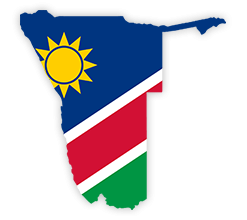
Namibia
Namibia, a large and sparsely populated country on Africa's south-west coast, has enjoyed stability since gaining independence in 1990 after a long struggle against rule by South Africa. Namibia achieved independence in 1990 after a bush war of almost 25 years. Inter-racial reconciliation encouraged the country's white people to remain and they still play a major role in farming and other economic sectors. Deserts occupy much of the country; their dunes take on shapes and colours according to the elements. The country also boasts game-rich grasslands and a semi-arid Central Plateau, large tracts of which are given over to livestock farming.
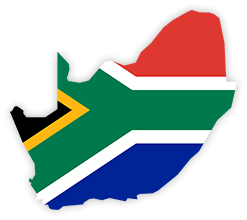
South Africa
Diversity is a key feature of South Africa, where 11 languages are recognised as official, where community leaders include rabbis and chieftains, rugby players and returned exiles, where traditional healers ply their trade around the corner from stockbrokers and where housing ranges from mud huts to palatial homes with swimming pools. South Africa has one of the continent's biggest economies, though this went into recession in May 2009 following a sharp slowdown in the mining and manufacturing sectors. The construction industry, on the other hand, benefited from a huge programme of government investment ahead of the 2010 World Cup. South Africa is, along with China, Brazil, Russia and India, a member of the BRICS club of emerging world economic powerhouses.
